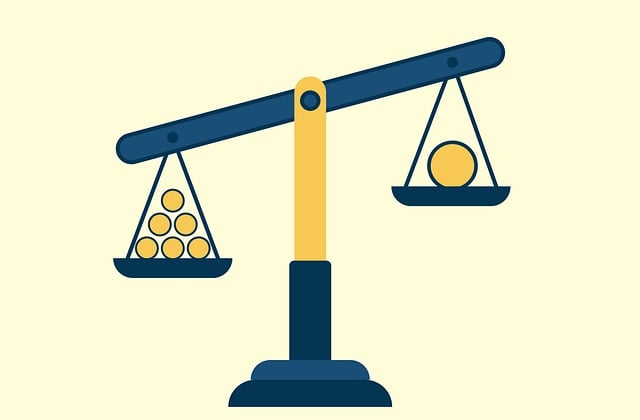Consumer protection litigation against antitrust violations involves complex legal battles to safeguard consumers from businesses engaging in price-fixing, market division, and monopolistic behavior. Accused parties employ common defenses like challenging case merits or evidence, but a deep understanding of market dynamics and antitrust laws is crucial for robust defenses. Notable cases, such as Microsoft Corporation's trial in the late 1990s, offer insights into these defenses and their strategic use by businesses to avoid or mitigate fines and reputational damage. Understanding common defenses is vital for navigating the intricate web of regulations balancing business strategies with consumer interests and market competition.
“Antitrust violation cases play a pivotal role in maintaining fair market competition, safeguarding consumer rights, and fostering economic health. This comprehensive guide explores the intricate world of consumer protection litigation, delving into various strategies employed by both plaintiffs and defendants. From understanding rare instances where companies utilize legal defenses like market efficiency arguments to analyzing successful prosecution tactics, we uncover the key dynamics. The article also highlights real-world case studies, revealing the profound impact and consequences of antitrust breaches on businesses and consumers.”
- Understanding Antitrust Violation Cases: A Comprehensive Overview
- Common Types of Consumer Protection Litigation Strategies
- Key Defenses Employed by Companies Accused of Anti-Trust Breaches
- The Impact and Consequences for Businesses and Consumers Alike
- Case Studies: Notable Antitrust Violation Trials and Their Outcomes
Understanding Antitrust Violation Cases: A Comprehensive Overview

Antitrust violation cases are legal battles aimed at protecting consumers from unfair business practices, such as price-fixing, market division, and monopolistic behavior. These cases, often complex, involve scrutinizing corporate strategies and their impact on free market competition. Understanding these violations is crucial in consumer protection litigation, where businesses face significant consequences for anti-competitive acts.
The legal landscape offers various common defenses for both corporate and individual clients accused of antitrust violations. A robust general criminal defense strategy can challenge the merits of the case, questioning the evidence and intent behind the alleged actions. Moreover, successful winning challenging defense verdicts have set precedents, demonstrating that a thorough understanding of market dynamics and antitrust laws is key to building robust defenses. These cases often turn on nuanced legal interpretations, making it vital for attorneys to navigate the intricate web of regulations and policies governing consumer protection.
Common Types of Consumer Protection Litigation Strategies

In Consumer Protection Litigation, several strategies are employed to safeguard consumers from unfair business practices. One common approach involves antitrust violations, where plaintiffs argue that companies have monopolized markets or engaged in collusion, leading to higher prices and reduced consumer choice. Another avenue is false advertising, where consumers challenge misleading marketing claims, ensuring product quality and safety. Product liability cases also fall under this category, focusing on defects and injuries caused by faulty goods.
Defending against these cases can be complex, with common defenses including challenging the interpretation of laws and regulations, proving that business actions were in line with industry standards, and demonstrating that any harm was not directly attributable to the defendant’s actions. Legal teams often employ strategic negotiations and settlements, aiming for winning challenging defense verdicts in high-stakes cases. Through meticulous legal arguments and evidence presentation, they strive to achieve extraordinary results, protecting businesses while ensuring consumer rights are upheld.
Key Defenses Employed by Companies Accused of Anti-Trust Breaches

When faced with antitrust violation cases, companies often employ several key defenses to counter the allegations. One common strategy is challenging the definition of the relevant market or product, arguing that their actions did not significantly impact the broader market dynamics. This approach aims to downplay the perceived harm to consumers and competition. Additionally, companies may assert that their business practices are protected by legal exemptions, such as those for research and development or certain types of collaborations. These defenses have proven effective in many cases across the country, allowing respective businesses to avoid or mitigate substantial fines and reputational damage.
Another frequently used defense is denying the existence of an antitrust violation altogether, claiming that their actions were legitimate business decisions made in good faith. Companies may also argue that any perceived harm was merely a result of market forces or competitive responses rather than intentional anti-competitive behavior. This strategy often involves intricate legal arguments and extensive documentation to demonstrate that their practices align with standard industry norms and do not violate consumer protection laws, as is the case in general criminal defense scenarios.
The Impact and Consequences for Businesses and Consumers Alike

Antitrust violation cases have far-reaching implications, significantly impacting both businesses and consumers. When a company engages in anti-competitive practices, it distorts market dynamics, leading to higher prices, reduced choices, and potential harm to consumer welfare. These violations can result in severe consequences for the respective business, including substantial fines, legal penalties, and damage to its reputation. Consumers, on the other hand, may face limited access to products or services, higher costs, and a lack of innovation.
In terms of common defenses in consumer protection litigation, businesses often argue that their actions were not anti-competitive but rather competitive strategies aimed at staying relevant in the market. Some companies with an unprecedented track record of success might even claim that their practices are essential for fostering innovation or improving efficiency. However, these defenses are scrutinized closely to ensure the complete dismissal of all charges and to protect the interests of consumers as a whole.
Case Studies: Notable Antitrust Violation Trials and Their Outcomes

In the realm of consumer protection litigation, case studies of notable antitrust violation trials offer valuable insights into the application and enforcement of anti-monopoly laws. These high-profile cases not only highlight the significant impacts of corporate misconduct but also shed light on common defenses employed by businesses facing such charges. One prominent example is the Microsoft Corporation trial in the late 1990s, where the company was accused of using its dominant market position to stifle competition and harm consumers. The outcome—a landmark decision resulting in a unprecedented track record for structural remedies—set a precedent for future cases involving digital platforms and market power.
Through these case studies, we observe how courts scrutinize various defenses commonly presented by businesses, such as the argument that their practices enhance innovation or serve consumer interests. The interplay between antitrust laws and the respective business strategies is complex, often pitting the need for competition and consumer welfare against the motivations of powerful corporations. This dynamic is further complicated by the involvement of philanthropic and political communities, who may have varying perspectives on the role of regulation in fostering market growth versus protecting consumers from exploitative practices.
Antitrust violation cases play a crucial role in maintaining fair market competition, protecting consumers, and fostering innovation. By understanding the various strategies employed in consumer protection litigation, companies can develop robust defenses using common defenses in consumer protection litigation. The impact of these cases extends to both businesses and consumers, with consequences that shape market dynamics and ensure justice. Examining notable antitrust violation trials provides valuable insights into how legal strategies and their outcomes can influence future practices, ultimately enhancing transparency and competition in the digital era.






